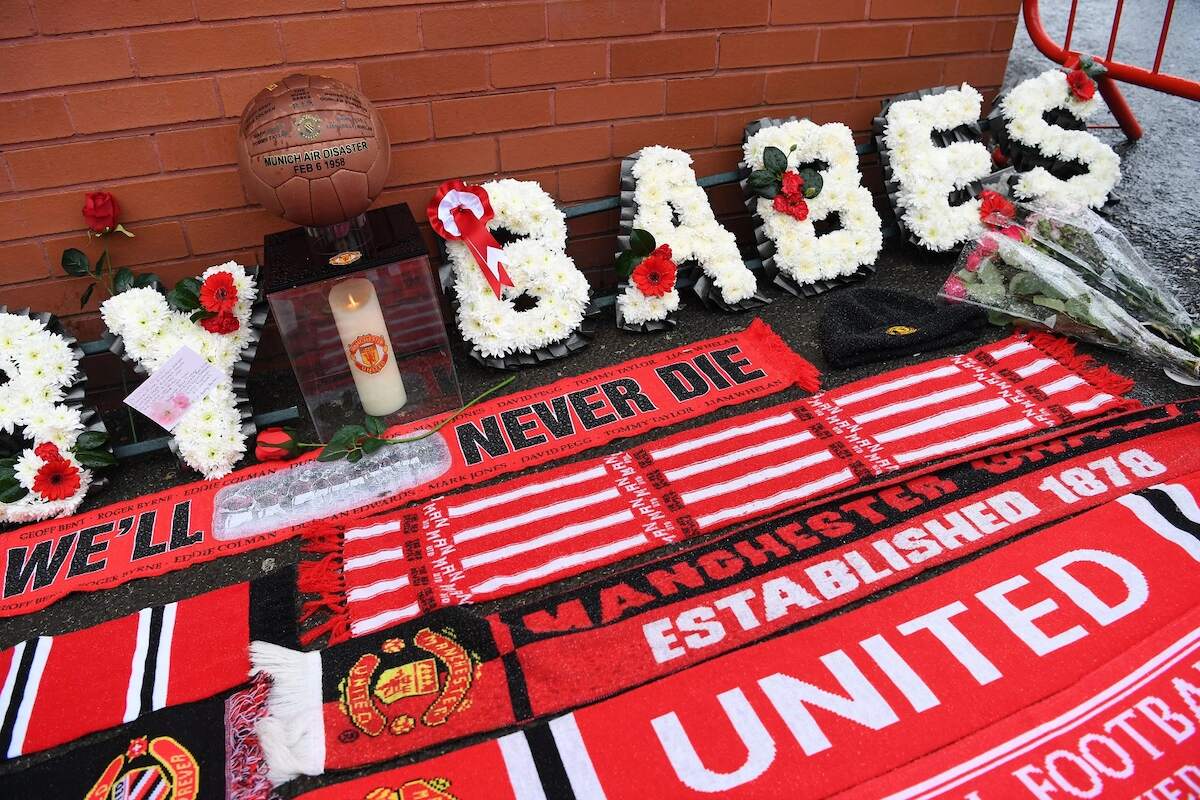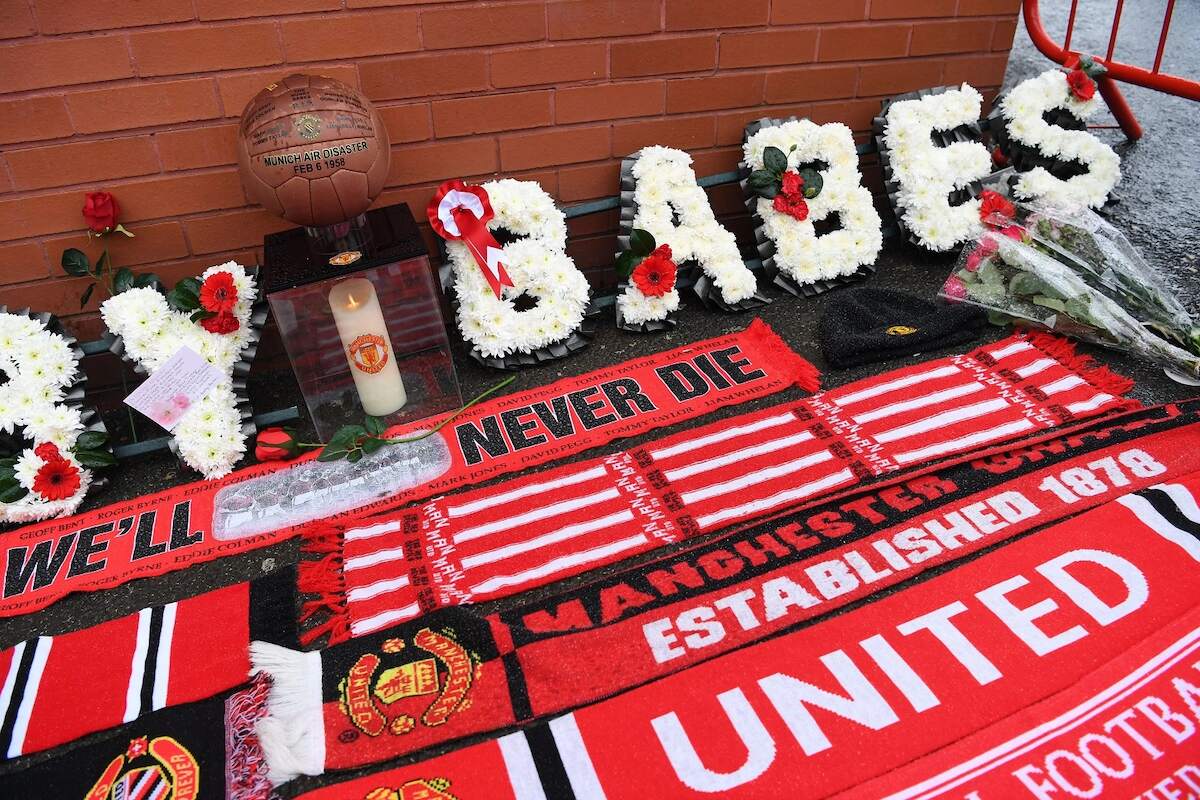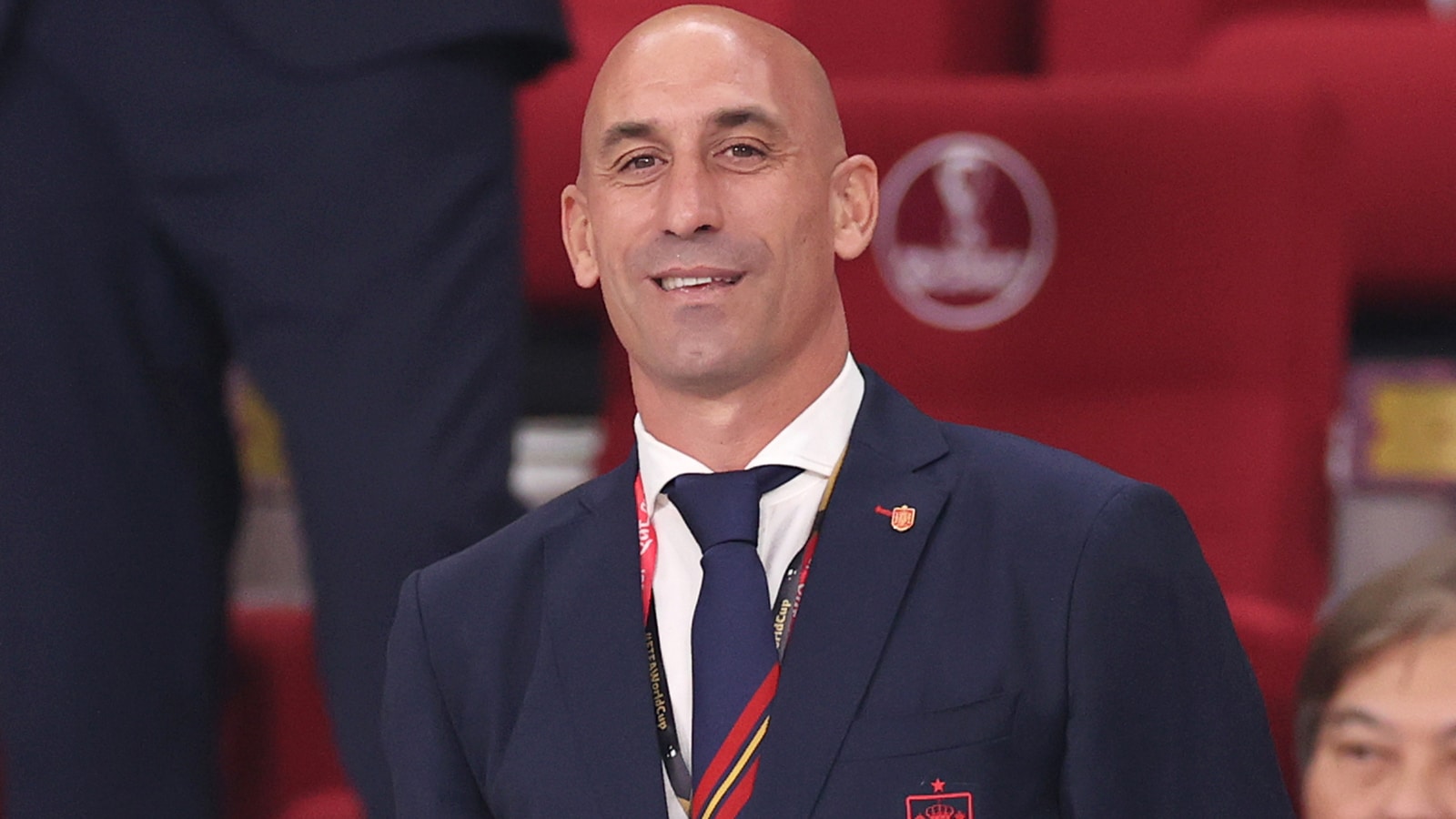
The Tragic Tale of the Munich Air Disaster That Killed 8 Manchester United Players and 3 Staff Members
The Munich air disaster, the plane crash that killed eight Manchester United players and three team staff members, is still seen today as one of the greatest tragedies in sports history. A dozen additional people died in the incident, including the co-pilot and a number of well-respected journalists.
However, there were 21 survivors. At least a few of them owed their lives to Manchester United goalkeeper Harry Gregg, who risked his own safety to help evacuate passengers.
Manchester United was returning from Yugoslavia following a European Cup match with Red Star Belgrade
Led by manager Matt Busby, Manchester United was seen as one of the favorites heading into the 1957-58 European Cup. The team was extremely young, earning the nickname the “Busby Babes.” But the club was full of talented players. They had reached the semifinals of the prestigious tournament the year before, where they lost to eventual champion Real Madrid.
On February 5, 1958, Manchester United was in Yugoslavia for a match against Red Star Belgrade. This was their chance to get back to the semifinals. The two clubs battled to a 3-3 draw, but the Red Devils were given the slot due to the 5-4 advantage they held on aggregate.
The team chartered a British European Airways plane for the trip. Their flight out of Belgrade on February 6 was delayed by over an hour when forward Johnny Berry lost his passport. The flight then had to stop in Munich, Germany, to refuel. That’s when disaster struck.
Eight Manchester United players and three staff members were killed in the Munich air disaster

Flying conditions certainly weren’t great around Munich that day as the city was experiencing a snowstorm. To make matters worse, one of the plane’s pilots, Captain James Thain, abandoned the first two takeoff attempts after refueling due to engine troubles.
The Manchester United players, staff, and the numerous other passengers on board returned to the airport lounge. They were called back to the plane about 15 minutes later as the crew wanted to stay as close to on schedule as possible.
By this time, there was a lot of snow on the ground, but the plane received permission to take off anyway. However, slush had built up on the runway, and the plane could not reach the necessary speed to take off. It slid off the runway, crashed through a fence surrounding the airport, and went across a neighboring road. It plowed into a house, tearing off the left wing and setting the house and plane on fire. The three people in the house escaped uninjured.
Of the 44 people on board the plane, 20 died at the scene. Three others, including co-pilot Captain Kenneth Rayment and Manchester United player Duncan Edwards, died in the ensuing weeks as a result of their injuries. In total, eight Manchester United players (Geoff Bent, Roger Byrne, Eddie Colman, Duncan Edwards, Mark Jones, David Pegg, Tommy Taylor, and Billy Whelan) were killed.
Club secretary Walter Crickmer, trainer Tom Curry, and chief coach Bert Whalley were also killed. Matt Busby suffered numerous injuries and was in critical condition for many weeks.
In the years that followed, Manchester United brought legal action against British European Airways. The case was eventually settled out of court.
Goalkeeper Harry Gregg saved numerous lives that day
The final death total in the Munich air disaster was ultimately 23 people, reports the Evening Standard. But it could have been higher had it not been for the heroic actions of Manchester United goalkeeper Harry Gregg.
Gregg had been knocked unconscious in the collision. When he came to, he kicked through the plane to escape but went back in on two occasions to help save anyone he could. He saved the lives of teammates Dennis Viollet, who died in 1999, and Bobby Charlton, who went on to win a World Cup title with England in 1966 and is considered one of the greatest players in Manchester United history. He’s still alive to this day.
Gregg, who died in 2020 at the age of 87, also rescued Vera Lukic and her 20-month-old child. The wife of a Yugoslavian diplomat was pregnant at the time of the crash.



